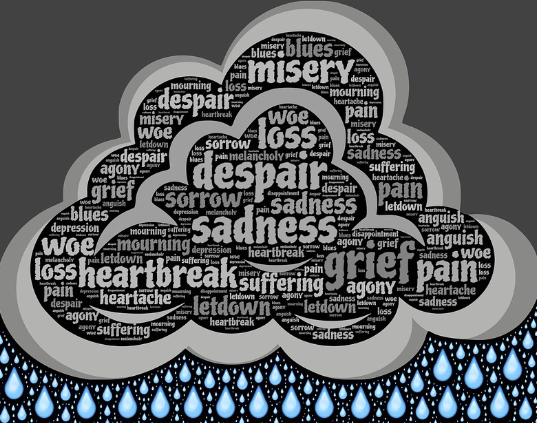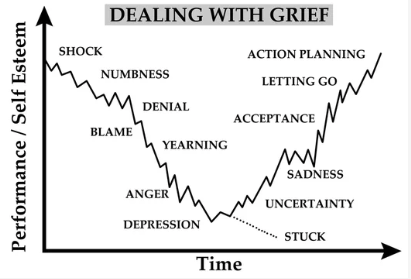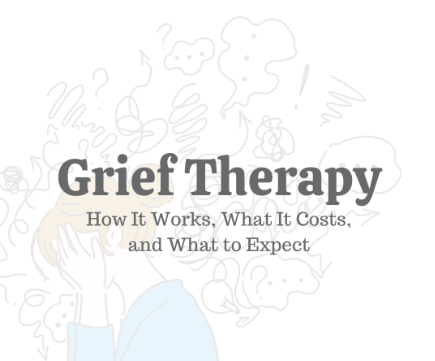GRIEF counselling
Grief is an innate reaction to experiencing loss. It encompasses the emotional sadness that is experienced when we are separated from something or someone that we love and care very much for. The impact of loss can be profound, leading to an overwhelming sense of pain. During such times, a wide array of difficult and unexpected emotions may surface, ranging from shock and anger to disbelief, guilt, and profound sadness. This grief can also take a toll on our physical well-being, disrupting our sleep, appetite, and ability to think clearly.
Coping with the departure of a loved one, whether it be a person or something else, is one of life’s greatest challenges.
Grief is usually described in relation to the death of a loved one, but other types of major loss can also lead to feelings of grief. The more significant a loss, the more intense grief may be.



People may feel grief over:
- the death of a loved one — grief can be particularly severe following the death of an infant or child, or a suicide
- divorce or separation
- the loss of a beloved pet
- giving up something that mattered
- work changes — for example, unemployment, retirement or retrenchment
- the diagnosis of a terminal illness
- the loss of good health because of an illness, accident or disability
- miscarriage or infertility
- having a child with a disability, a terminal illness, a mental illness or a substance abuse problem
- moving away or separation from family or friends
- having an ‘empty nest’ when children leave home

Grieving is an individual experience and there’s no right or wrong way to grieve. How you grieve depends on many factors, including your personality and coping style, your life experience, your faith, and how significant the loss was to you.
Grieving process takes time and healing will happen gradually. There’s no timing or rules on grieving, remeber; it is an individual experience. It’s fundamental to be compassionate with yourself and allow time and therapy to heal your pain.
If you have persistent feelings of sadness, and are unable to experience happiness, you may be experiencing depression. If your feelings are getting in the way of your everyday life, then it’s important to seek help.


Grief counseling:
Grief therapy, also known as grief counseling or bereavement counseling, is a form of psychotherapy that helps individuals cope with the emotional and psychological challenges of grief and loss. There are various therapeutic techniques used to support individuals through the grieving process. Here are some common grief therapy techniques:
Cognitive Behavioral Therapy (CBT): This approach helps individuals identify and change negative thought patterns and behaviors related to grief. It assists in reframing thoughts, challenging cognitive distortions, and promoting healthier coping strategies.
Supportive Counseling: Providing a safe and empathetic space for individuals to express their feelings, thoughts, and memories related to the loss. It involves active listening, validation, and understanding without judgment.
Mindfulness and Meditation: These practices encourage individuals to be present in the moment and acknowledge their feelings without judgment. They help reduce anxiety and promote emotional regulation.
BOOK APPOINTMENT & INFO
Together we will find the way to help you
- Call us: 0451344805
- +61451344805
- psy.constanza@gmail.com
- ps_constanza
- 410/251 Oxford Street, Bondi Junction, 2022
